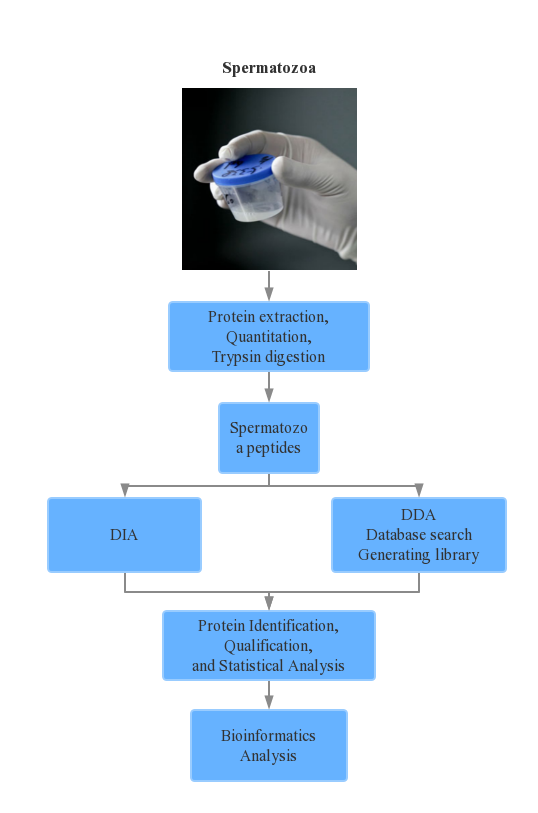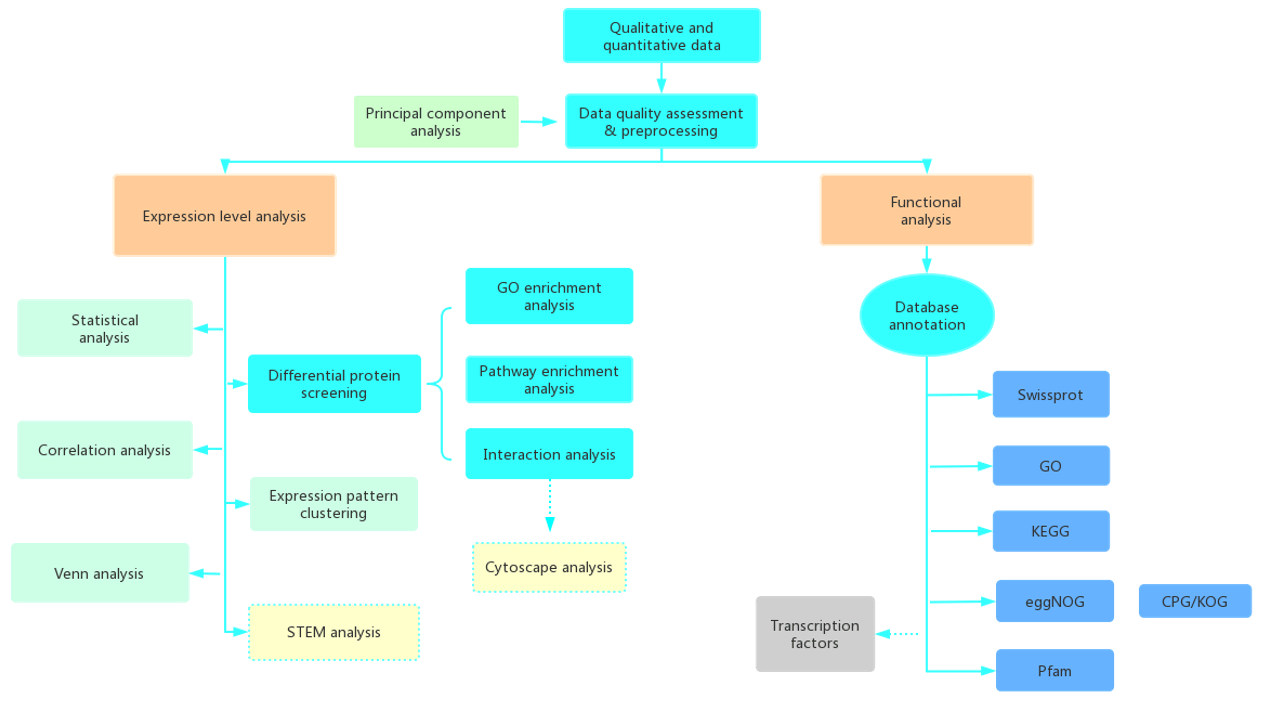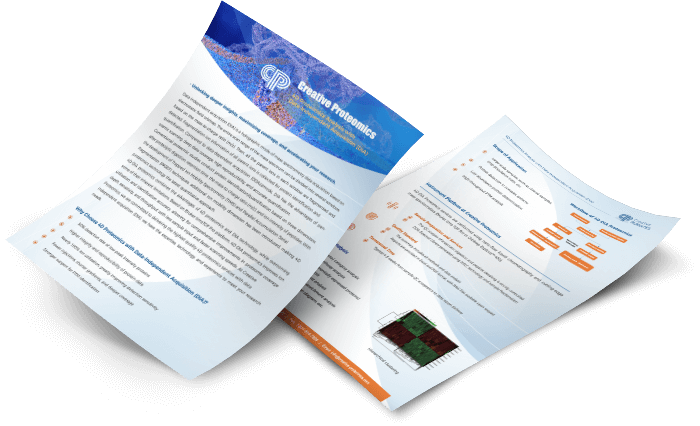Spermatozoa Proteome Research Solutions
In-depth studies of the sperm-specific proteome, mechanisms of protein function, and its functional pathways such as regulation of protein hydrolysis, biomarkers, and mechanisms of oxidative stress induction will contribute to a better understanding of the physiological functions of sperm.
Large-scale proteomic analysis of purified proteins will eventually lead to the development of new biomarkers that can detect disease states, genetic abnormalities, and risk factors for male infertility. Ultimately, these biomarkers will contribute to better diagnoses of sperm dysfunction and aid in drug development.
Recent advances in proteomics technologies have provided a theoretical basis for the study of sperm function and dysfunction. In the last few years, comparative proteomics has shown the ability to detect differences and screen for biomarkers. The development of mass spectrometry techniques as well as data acquisition methods has helped for the identification and characterization of spermatozoa. Developments in bioinformatics have further helped researchers to understand the vast amount of data collected in proteomic studies. These advances in proteomics have helped decipher and identify metabolites and sperm and seminal plasma (SP) proteins that can serve as biomarkers for detecting sperm damage and potentially develop new approaches for infertility treatment or sperm preservation.
Due to simultaneous high-throughput scanning and identification of all peptides within a given mass range, data-independent acquisition mass spectrometry (DIA-MS) provides the possibility to overcome the limitations associated with data-dependent acquisition (DDA). DIA has been successfully applied as a promising mass spectrometry acquisition method to study plasma, cellular, and tissue proteomics changes in recent years.
Our Quantitative Proteomics Service for Spermatozoa Secretions
Based on DIA technology, we can provide services to detect proteins and other analytes in spermatozoa samples with high throughput, helping you explore novel biomarkers and accelerate the research process for diagnosis, prognosis, and treatment of related diseases. Of course, we can also provide traditional mass spectrometry services to help you analyze your spermatozoa samples to meet your research needs.
Workflow
The depth and relatively straightforward nature of our workflow enable the powerful detection of biomarkers of specific diseases.

Data Analysis

Advantages of Our Technologies
- High accuracy, QC CV as low as 25% for large projects
- High throughput, up to 9000 proteins can be quantified at once
- Quantitatively identify nearly all detectable molecules, covering low-abundance proteins/peptides
- High repeatability, increased by 30% and up to 90%
- Complete and comprehensive information storage of samples in the first analysis
- Standard data and advanced data analysis
- Cost-effective
Sample Requirements
| Sample Type | Protein | # of Cell | Semen |
| Quantify | 100 ug | 1×107 cells | 500 uL |
Report
- Experimental steps
- Relevant experiment parameters
- Mass spectrometry spectra
- Raw data
- Proteomics analysis results
Since we began to provide DIA technology service, we have accumulated a lot of experience not only in detecting a large cohort of conventional samples, but also in providing one-stop service of DIA+PRM+machine learning for biomarker studies, tumor-based proteomic typing, and large-scale clinical sample proteomic analysis based on next-generation chromatography (Evosep DIA). Please get in touch with us for a free consultation.
References:
- Stefan S du Plessis et al. Proteomics: a subcellular look at spermatozoa. Repro'd Biol Endocrinol. 2011; 9: 36.
- Wen Zhu et al. Proteomic characterization and comparison of ram (Ovis Aries) and buck (Capra Hircus) spermatozoa proteome using a data-independent acquisition mass spectrometry (DIA-MS) approach. PLoS One. 2020; 15(2): e0228656.


 4D Proteomics with Data-Independent Acquisition (DIA)
4D Proteomics with Data-Independent Acquisition (DIA)